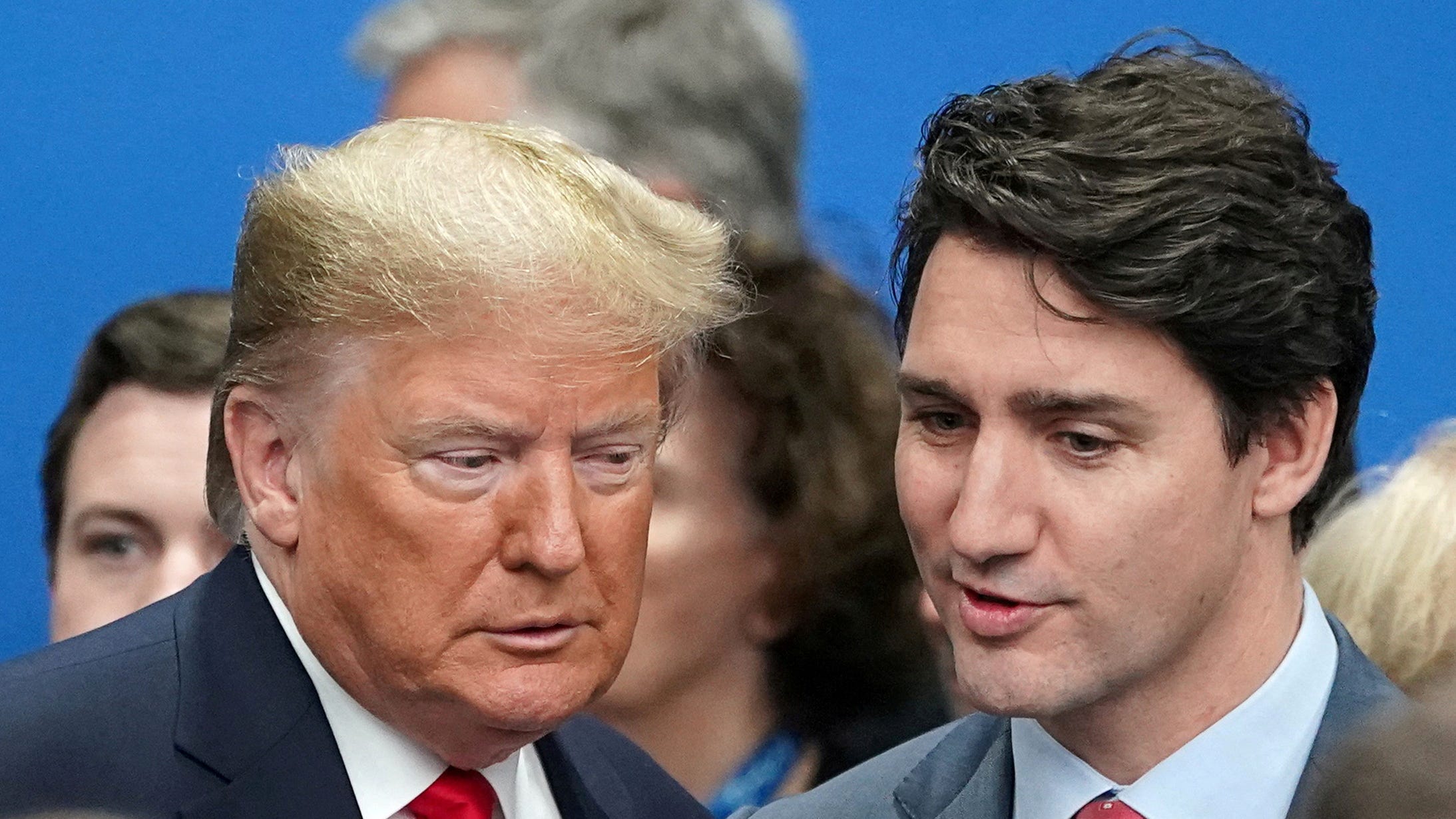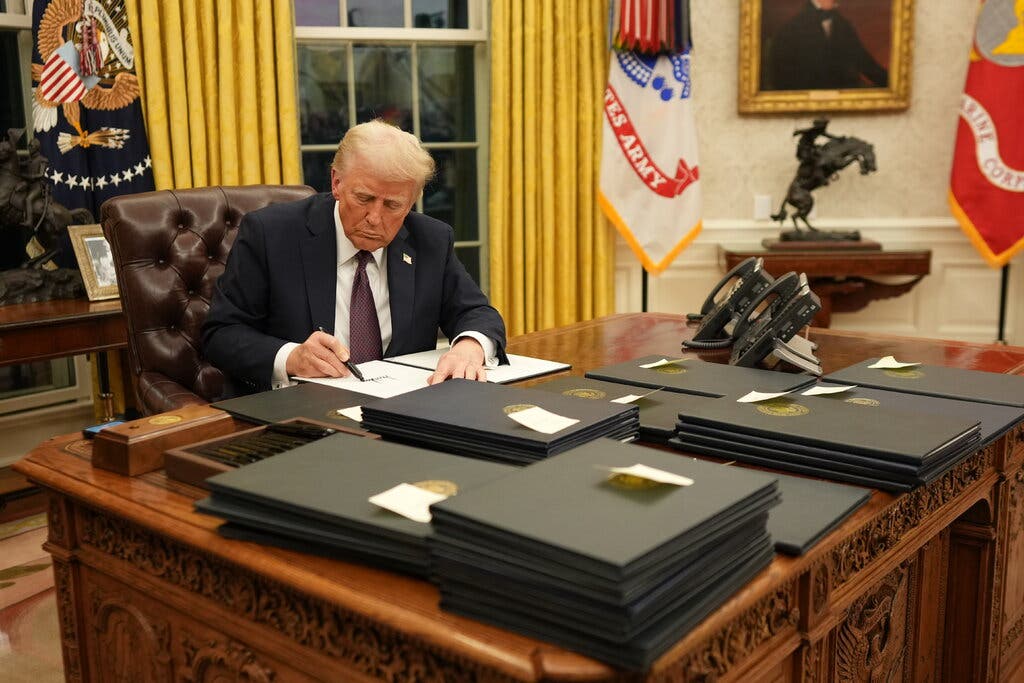Tariff Cuts And Rare Earths: Key Demands In Trump's China Trade Talks

Table of Contents
Demand for Tariff Reductions
The Trump administration has consistently argued for significant reductions in tariffs imposed on US goods entering the Chinese market. These tariffs, a key component of the "China trade war," have increased the cost of American products for Chinese consumers, impacting US exports and competitiveness. The US claims that these high import tariffs constitute unfair trade barriers, hindering American businesses from effectively competing in the vast Chinese market. The argument centers on the belief that lower tariffs would lead to a more balanced trade relationship and stimulate economic growth.
The impact of these tariffs extends beyond US businesses. Consumers also bear the brunt, facing higher prices on imported goods. Lowering tariffs aims to mitigate these negative effects:
- Reduced consumer prices: Lower tariffs translate to lower prices for consumers on a wide range of goods.
- Increased competitiveness for US businesses: Reduced trade barriers allow US companies to better compete with Chinese and other international manufacturers.
- Potential for job creation: Increased exports and a more competitive market can lead to job growth within the US.
- Easing of supply chain disruptions: Lower tariffs can streamline supply chains, reducing delays and uncertainties for businesses.
The core issue is the persistent US-China trade deficit. The administration believes that lowering tariffs is a crucial step towards addressing this imbalance and creating a more equitable trading environment. The reduction of China tariffs is a central focus of these negotiations.
Securing Access to Rare Earth Minerals
Rare earth minerals are critical components in numerous high-tech industries, including defense, telecommunications, and renewable energy. China currently dominates the global production and processing of these strategic minerals, creating concerns within the US about its supply chain vulnerability. The Trump administration's trade demands include securing fair and reliable access to these vital resources. The US seeks to diversify its sources and reduce its reliance on China for these essential materials.
The strategic importance of these rare earth elements cannot be overstated. The US aims to:
- Diversify rare earth supply chains: Reducing reliance on a single dominant supplier ensures greater stability and resilience.
- Invest in domestic rare earth mining and processing: This initiative aims to bolster domestic production and reduce dependence on foreign sources.
- Fair trade practices related to rare earth minerals: The US seeks to establish transparent and equitable trade agreements to ensure fair access to these critical materials.
- Strengthening national security through secure supply chains: Reliable access to rare earth minerals is vital for maintaining national security and technological competitiveness. The current situation poses significant risks to national security.
The Broader Context of US-China Relations
These trade demands are not isolated incidents but integral parts of the broader and often tense US-China relations. The success or failure of these negotiations will significantly impact the overall bilateral relationship and have far-reaching geopolitical implications. Other significant issues in this relationship, such as cybersecurity, human rights, and regional influence, also influence the trajectory of the trade talks.
- Geopolitical implications of the trade talks: The outcome will affect the global power balance and shape alliances across the globe.
- Impact on global trade and economic growth: The resolution (or escalation) of the trade war will have ripple effects on global trade patterns and economic activity.
- Future of US-China cooperation and competition: The negotiation's outcome will determine the future nature of US-China cooperation and competition in various spheres.
Economic sanctions and the potential for further escalation are always looming factors in these complex negotiations.
Conclusion
Trump's administration's key demands in the China trade talks revolve around significant tariff reductions on US goods and securing reliable access to rare earth minerals. These issues are not merely economic considerations; they are vital for the US economy and national security. The successful resolution of these issues would lead to a more balanced trade relationship, reduced consumer prices, and strengthened supply chain security. Stay informed about the ongoing developments in Trump's China trade talks and the progress made on tariff cuts and rare earth mineral access. Further research into "US-China trade agreement," "rare earth market," and "trade negotiation updates" will provide deeper insight into this evolving situation.

Featured Posts
-
 Breaking Barriers A Former Flight Attendants Inspiring Story Of Becoming A Pilot
May 12, 2025
Breaking Barriers A Former Flight Attendants Inspiring Story Of Becoming A Pilot
May 12, 2025 -
 Impact Of Trump Tariffs A New York Courts Ruling
May 12, 2025
Impact Of Trump Tariffs A New York Courts Ruling
May 12, 2025 -
 The Impact Of Cbss Vma Simulcast On Mtvs Viewership
May 12, 2025
The Impact Of Cbss Vma Simulcast On Mtvs Viewership
May 12, 2025 -
 O Hare Domination United And American Airlines Fierce Competition
May 12, 2025
O Hare Domination United And American Airlines Fierce Competition
May 12, 2025 -
 Fox Announces New Indy Car Documentary May 18 Premiere
May 12, 2025
Fox Announces New Indy Car Documentary May 18 Premiere
May 12, 2025
